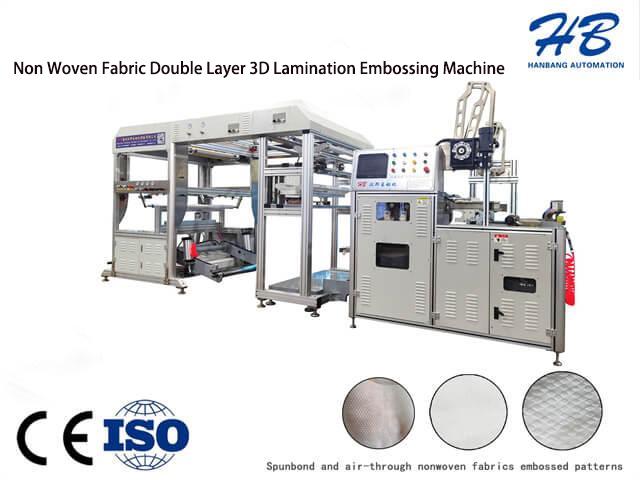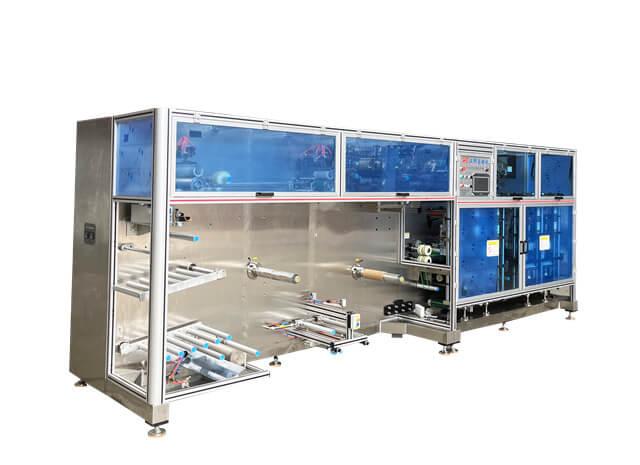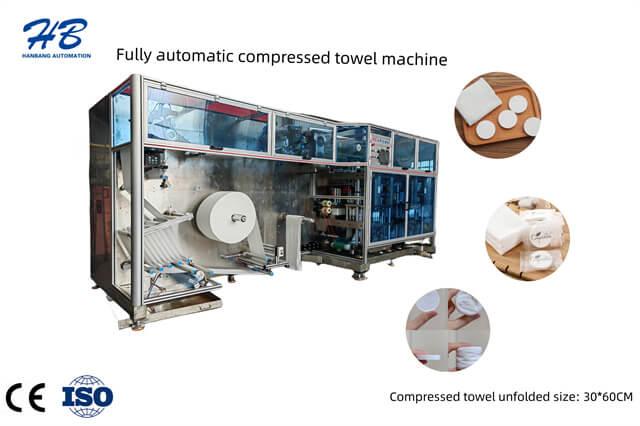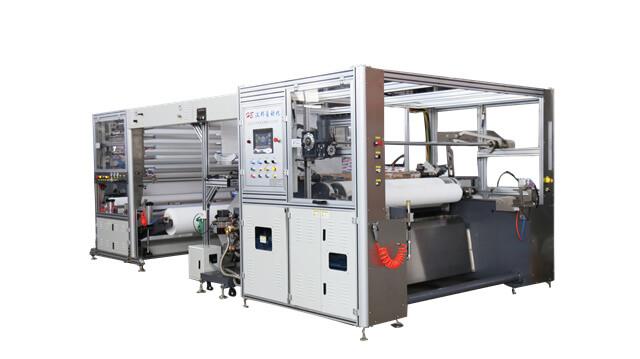Author:HB Nonwoven MachineryFROM:Compressed Towel Machine Manufacturer TIME:2023-09-26
Introduction:
In the modern world, personal hygiene is of utmost importance, and the maintenance and care of equipment used in the healthcare industry are crucial. One such equipment is the compressed shower towel machine, which plays a vital role in providing clean and hygienic towels for patients and individuals. This article aims to discuss the importance of maintenance and care for compressed shower towel machines and provide useful insights on how to keep them in optimal condition.

Maintaining proper cleanliness and hygiene is essential when it comes to compressed shower towel machines. These machines come into regular contact with water and damp environments, making them susceptible to bacterial growth and mold formation. Therefore, regular cleaning and disinfection are necessary to ensure the machine's proper functioning and prevent the spread of germs.
Start by disconnecting the machine from the power source and removing any detachable parts, such as the towel dispenser and water reservoir. Clean these parts separately using warm soapy water and a soft cloth. Ensure thorough drying before reassembling them.
For the main body of the machine, wipe it down with a damp cloth, using a mild detergent if necessary. Pay special attention to the areas prone to moisture build-up, such as the water inlet and outlet. Once cleaned, disinfect the machine using a suitable disinfectant spray or wipes. Make sure to follow the manufacturer's instructions regarding the choice of disinfectant and contact time.

Preventive maintenance plays a significant role in prolonging the lifespan of compressed shower towel machines. By taking proactive measures and carrying out routine checks, potential issues can be identified and addressed before they escalate into major problems.
Regularly inspect the machine for any signs of wear and tear, loose screws, or damaged components. Pay attention to the towel cutting mechanism, towel feeding system, and electrical connections. Lubricate the moving parts if necessary, using a lubricant recommended by the manufacturer.
In addition, monitor the water quality used in the machine. Hard water can cause mineral deposits and clog the internal tubing system. Consider installing a water softener or using water filters to minimize the build-up of limescale.

Proper training and education of the staff responsible for operating and maintaining compressed shower towel machines are crucial for their optimal performance. Staff should be well-versed in the proper usage and care of the machines to ensure their longevity and efficiency.
Organize regular training sessions for the staff, covering topics such as machine operation, cleaning procedures, and troubleshooting common issues. Encourage them to ask questions and provide feedback on any concerns they may have regarding the equipment.
Furthermore, create a comprehensive maintenance manual or guideline that outlines step-by-step instructions for routine checks, cleaning, and troubleshooting. This manual should be easily accessible to the staff and regularly updated to reflect any changes or improvements in the maintenance process.
Conclusion:
The maintenance and care of compressed shower towel machines play a vital role in ensuring the provision of clean and hygienic towels in the healthcare industry. Regular cleaning and disinfection, preventive maintenance, and staff training are essential aspects of maintaining these machines in optimal condition. By following these guidelines, healthcare facilities can extend the lifespan of the machines, improve efficiency, and contribute to a safe and hygienic environment for patients and individuals.





